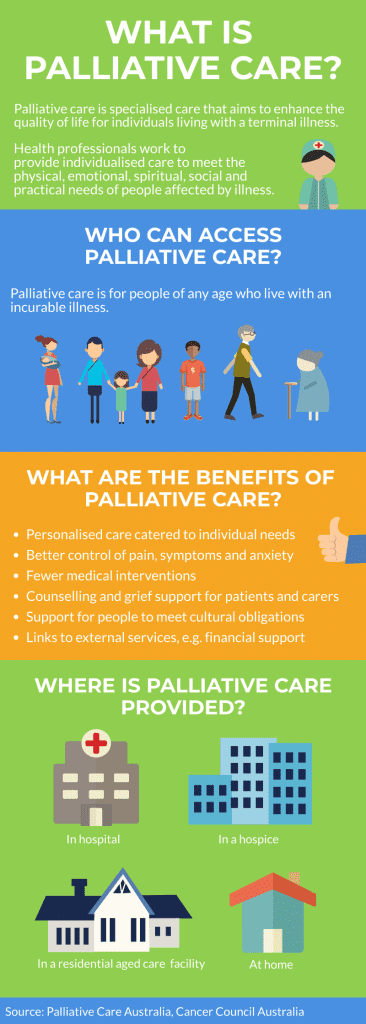A new report is calling for an overhaul of Australia’s palliative care system after research revealed $464 million could be saved each year if at-home end-of-life services were better funded.
The KPMG report released yesterday found an additional annual investment of $365 million would allow more patients with life-limiting conditions to access palliative care at home, reducing broader healthcare system costs.
It comes one day after the Minister for Aged Care and Senior Australians Richard Colbeck announced the federal government will invest $57.2 million to improve palliative care in aged-care facilities nationwide.
Released as part of National Palliative Care Week, the report found at-home care can improve the health and social outcomes for patients, but many fail to access it.
“All Australians who need palliative care are simply not having access to services when they need to, particularly at home and in community settings,” Palliative Care Australia Chair Professor Meera Agar said in a media release.
“As we prepare for an ageing population and other unexpected stresses to our health care system, like COVID-19, we must look seriously at reforming our system to ensure it can meet people’s needs into the future.”
The report has called for the federal government to invest in the system to improve access to home and community-based palliative services, expand services in residential aged care facilities and increase end-of-life services in hospitals.
The report also called for a national agreement on palliative care between the commonwealth, states and territories, and a new full-time palliative care commissioner, to ensure patients and their families are better supported during their time in care.
The findings have been welcomed by local palliative care provider South Coast Home Health Care (SCHHC), who provides at-home care to NDIS clients and Veterans in the Illawarra and Shoalhaven.
“Quite often there is not enough funding for palliative care teams to provide adequate care to patients so I would very much like to see this happen,” SCHHC CEO Glenda Potts said.
Ms Potts said at-home care can significantly improve the quality of life for those living with life-limiting conditions compared to institutional settings, such as hospitals.
“They’re in their familiar environment, they’ve got their own special things at home, they can have visitors, they can eat foods that they like,” she said.
“There are so many different things that they can have which makes it much more peaceful for them.”

A new report is calling for an overhaul of the palliative care system in Australia after research found $464 million could be saved each year if at-home end-of-life services were better funded. More to come @UOWTV #uowcreative
— Sarah Harvey (@sarah_harvey99) May 27, 2020

